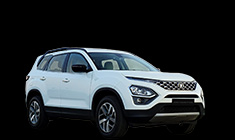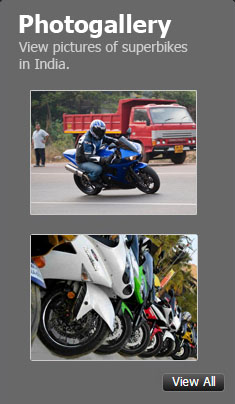News
Maruti S-Cross 2020: 7 Likes & Dislikes + Detailed Review
What you'll like:
- Solid build & good quality, inside out
- Competent 1.5L petrol offers excellent driveability & practicality
- Smooth torque-converter AT. Gets SHVS tech too
- Mature ride & handling package. High speed behaviour is exceptional
- Practical interiors, spacious cabin and supportive seats
- Features such as LED headlamps, cruise control, auto headlamps & wipers etc.
- Maruti's excellent after-sales support network
What you won't:
- This 1.5L petrol motor is uninvolving to drive. Enthusiasts, look elsewhere
- 4-speed Automatic gearbox feels old & outdated. No manual mode or paddle shifters either
- No diesel option! Maruti’s BS6 1.5L diesel engine is still some time away
- AT option has a steep Rs. 1.24 lakh ex-showroom premium (will be more on-the-road)
- Unappealing styling. Looks like a big hatchback (not a crossover / SUV). Is quite old too
- Missing features by 2020 standards (6 airbags, sunroof, wireless phone charging etc.)
- 353 liter boot - though well shaped - is small for a car of this size & positioning
Driving the 1.5L Petrol MT
Five years after launch, the S-Cross finally receives a petrol engine - the 1,462cc, 4-cylinder K15 that puts out 103 BHP @ 6,000 rpm and 138 Nm @ 4,400 rpm. This petrol motor will be the only option available until Maruti is ready with its BS6-compliant 1.5L diesel. The petrol engine is shared with the Ciaz, Ertiga, XL6 and Vitara Brezza. Note that the placement of the air intake is different compared to the other Maruti cars.
While the power figure is higher than the outgoing car's 1.3L 89 BHP diesel engine, it is of no match to some of the modern turbo-petrols in the segment - like the Creta + Seltos' 138 BHP, or the Duster + Kicks 1.3L's 154 BHP! Customers will also have to forget that characteristic mid-range punch and excellent fuel efficiency of the old S-Cross diesel. With the switch to petrol, the S-Cross' weight has gone down to 1,130 kg. The car's power-to-weight and torque-to-weight ratios are 91 BHP / ton and 122 Nm / ton.
The engine fires up with very little noise and without transmitting any vibrations to the cabin. At idle, it is silent. Press the clutch and you'll find that it is not as light as that of the Ciaz, but is still friendly enough. The gear shifter is light & smooth to use as well.
Release the clutch gradually and the car moves forward without any throttle input. You can even pull away from a standstill in 2nd gear, albeit with some extra accelerator input! Throttle response is quite satisfactory. Power comes in smooth & seamless. Low-speed driveability is good and in the lower gears, the car can pull reasonably well at anything over 1,000 rpm, though it is comfortable post 1,300 rpm. The way the engine is tuned makes the S-Cross a practical car to drive in urban surroundings. What's more, the 1.5L is refined at low revs.
Out on the open road, the car feels adequately quick, but far from being really f-a-s-t. Simply no comparison to the turbo-petrols of the competition. The S-Cross 1.5L is also more of a 'cruiser' rather than a 'racer'. Power delivery is linear and there is enough performance available to get the job done. When pushed, the engine revs to 6,300 rpm. And with a full load of passengers & cargo, you will need to work it hard at times. The S-Cross is more suited to a sedate driving style. Maruti appears to have shortened the gearing for the heavier S-Cross. 100 km/h is seen @ ~3,000 rpm, that's 400 more than in the Ciaz. This will affect your long-distance FE a bit.
We feel that the rev limit of 6,300 rpm is very conservative. Sometimes, in the middle of overtaking manoeuvres, you have to shift up. For the sake of comparison, we'll mention that many other 1.5L petrols touch 7,000 rpm and are more revv-happy too. The best way to sum up this engine is that it's 'adequate' & 'practical'.
Coming to NVH levels, the engine is silent while idling and acceptably refined at low revs. However, it is audible above 2,500 rpm. You can always hear the motor when you are accelerating. It starts getting loud post 3,500 rpm, and a lot more so after 4,500 rpm. At higher speeds, there is a fair amount of wind & road noise that filters into the cabin.
In the area of fuel economy, the S-Cross MT carries an ARAI rating of 18.55 km/l.
The Delta, Zeta and Alpha variants are equipped with cruise control, while ABS + EBD are standard on all variants. The handling, steering and braking of the S-Cross petrol are similar to the outgoing car's (read = very good).
Read Team-BHP's detailed Maruti S-Cross Review.


















